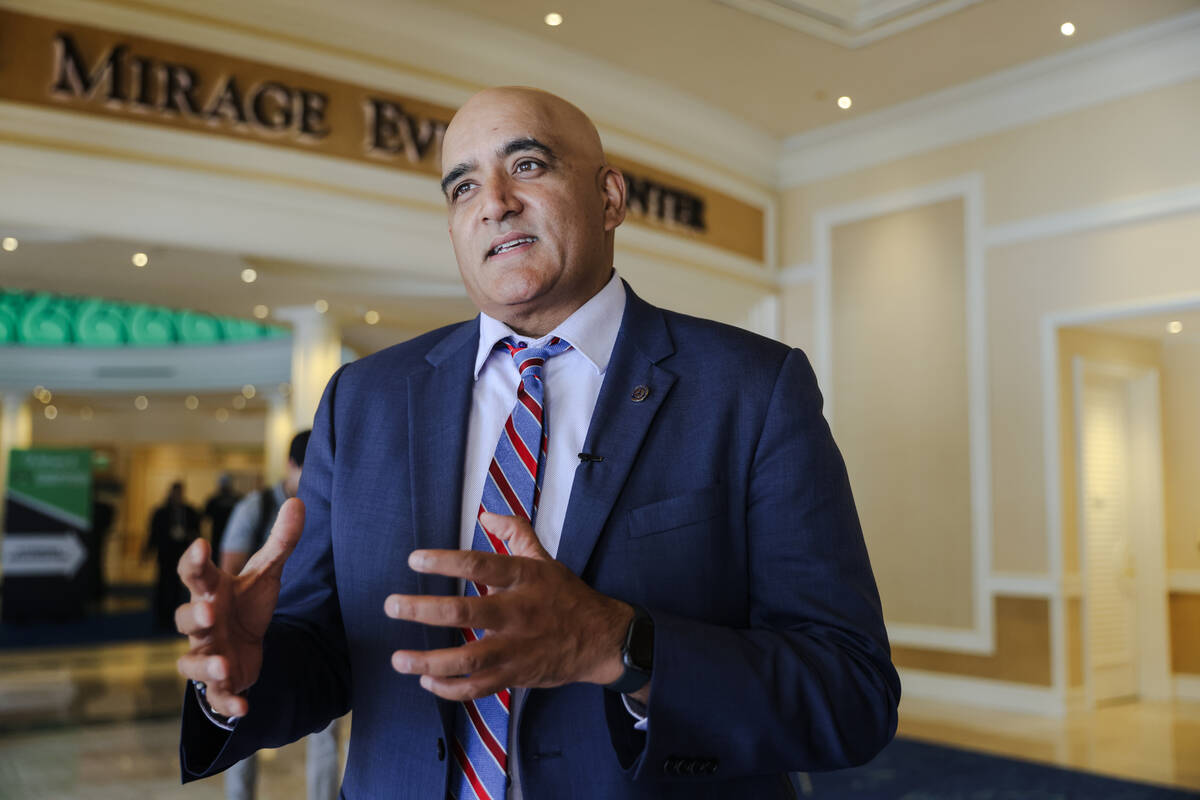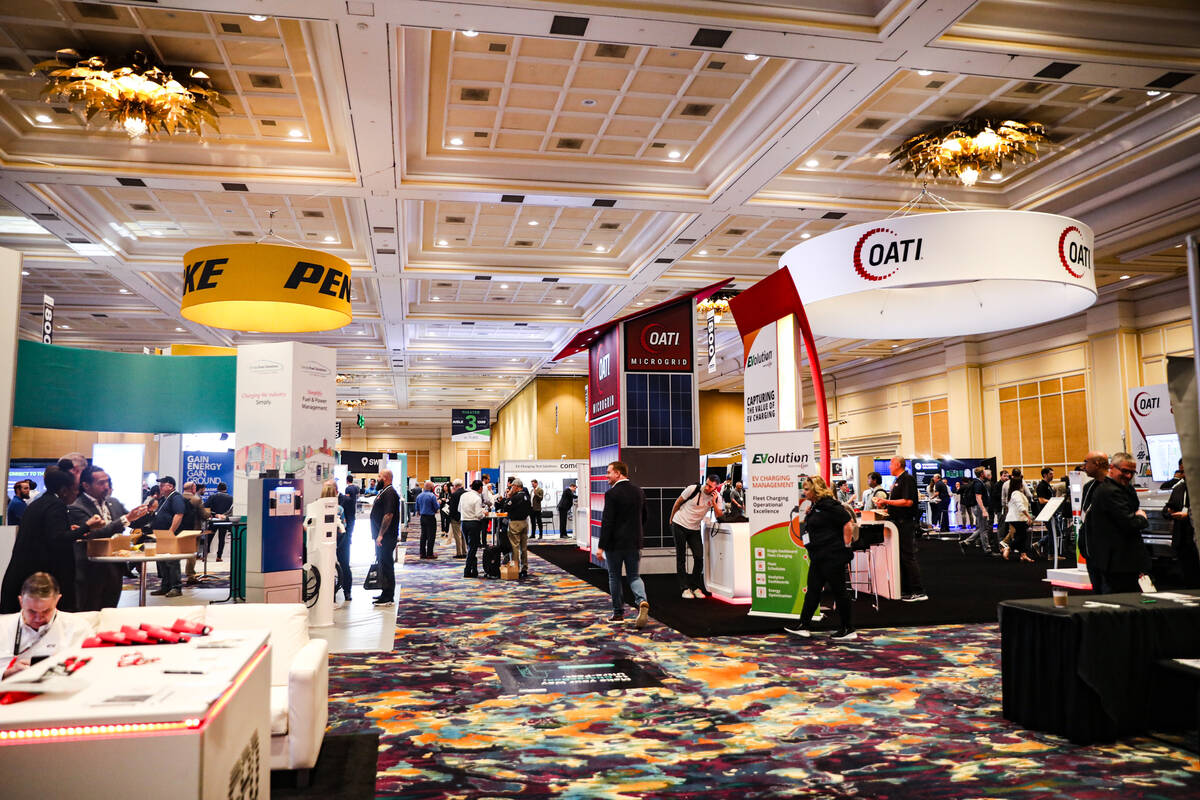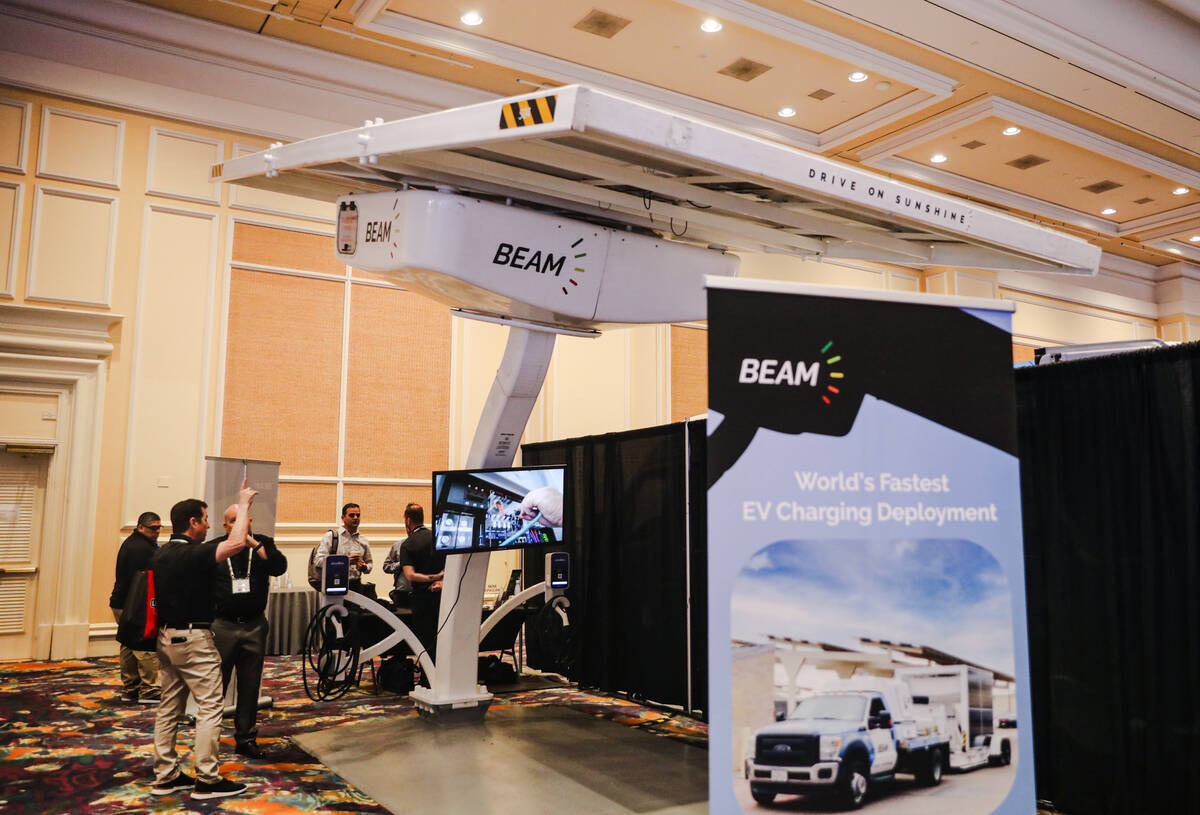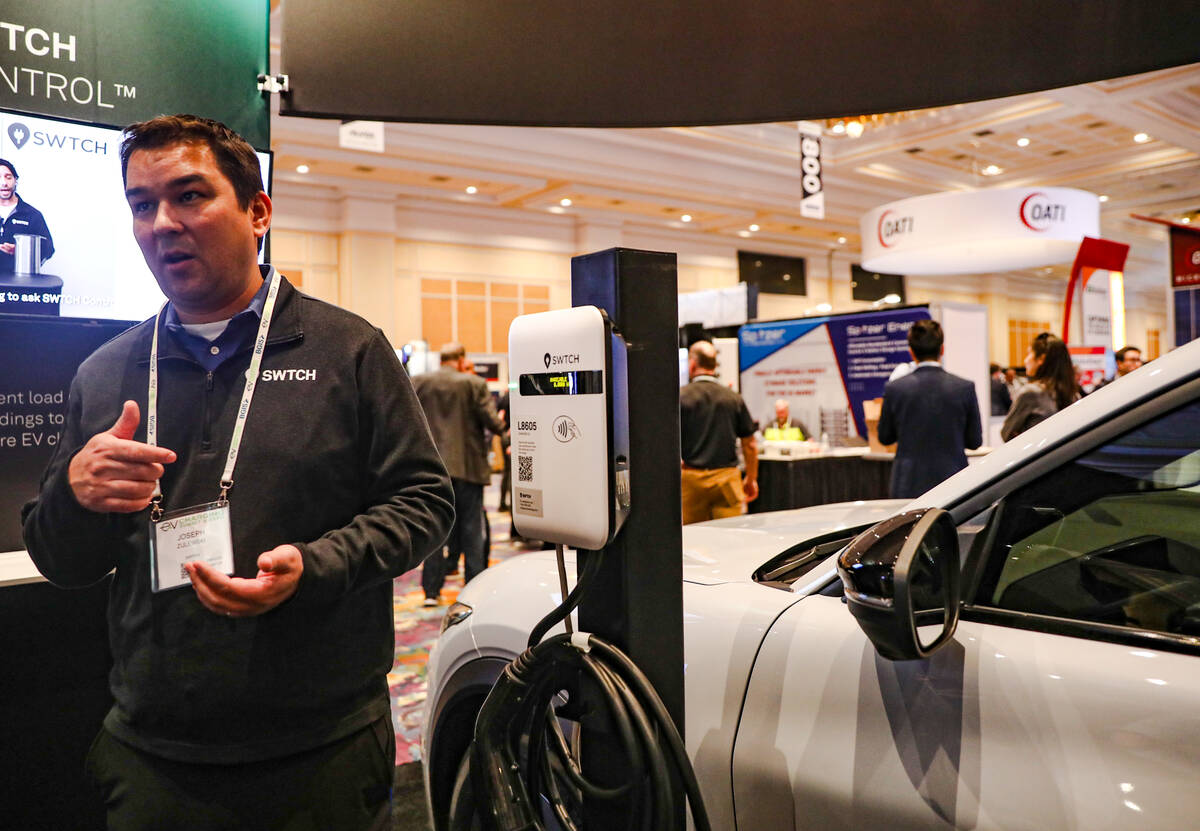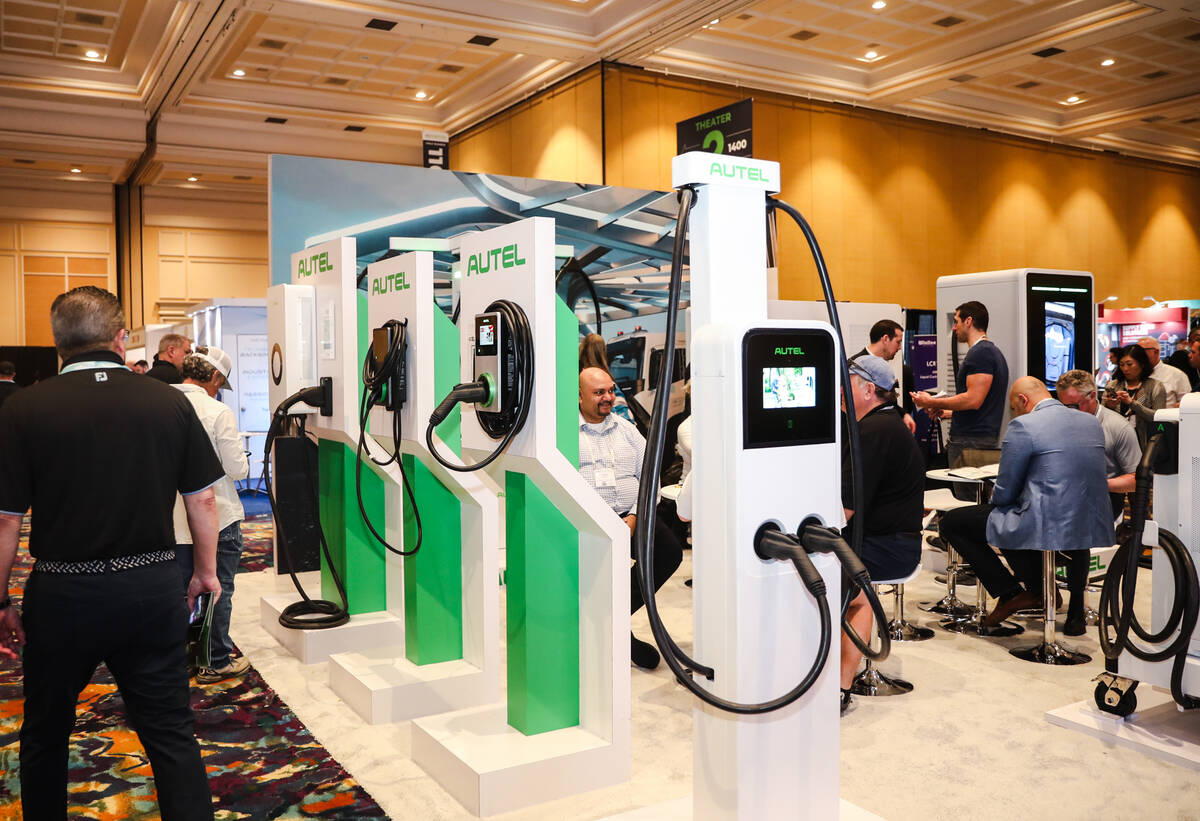What will make more Nevadans buy EVs?
Most Americans say there are too many barriers to operating an electric vehicle for them to purchase one, but a federal official has a seemingly simple fix.
The country needs to build more charging stations for EVs, said Shailen Bhatt, administrator of the Federal Highway Administration, who is in Las Vegas this week for the EV Charging Summit and Expo at the Mirage.
Only 1 in 4 Americans are likely to buy an EV, according to AAA survey from last year. Roughly 56 percent of survey respondents said a lack of charging stations is a barrier to them buying an EV and 53 percent cited concerns about how far EVs can go on a charge as another barrier.
Bhatt said those barriers are all linked to a shortage of EV chargers.
“If we had more chargers, we’d have less range anxiety, and therefore people would buy more electric vehicles,” he said.
There are just under 1,400 EV charging stations in the Las Vegas area, according to PlugShare, which maps where chargers are located.
But there’s an effort to add more chargers as the state of Nevada will receive $38 million from the Bipartisan Infrastructure Law to expand its EV network, and NV Energy was approved to spend about $70 million on electrifying some transportation in the state.
Bhatt said Nevada needs to focus on placing chargers along interstate corridors and in urban areas that people often visit.
“We’ve just got to put the right technology in the right places,” he said.
Right places for EV chargers
The right places are spots were drivers won’t mind having their car parked for a prolonged period of time such as retail and entertainment centers, said Andrew Cornelia, CEO of Mercedes-Benz HPC North America. Cornelia oversees Mercedes-Benz’s effort to build out a national network of universal EV chargers.
“It’s about lowering inconvenience time,” Cornelia said. “So having charging fade into the background, and really focusing on what you do while you charge. The only way to accomplish that is by finding the right partners where when you put charging at their location, there’s delightful experiences, whether it’s a dog run, whether it’s open airspace, whether it’s coffee, whether it’s a meal.”
Mercedes-Benz currently has a partnership with gas station chain Buc-ee’s, which mostly has locations in the South, but the company is looking to establish similar partnerships across the country, Cornelia said.
Is more federal funding needed?
The Biden administration has an ambitious plan to boost the number of EV chargers. Currently, the U.S. has about 177,000 public chargers but the administration has a goal to increase to 500,000 chargers by 2030, Bhatt said.
In order to accomplish that, the U.S. will likely need to approve more federal funds to create incentives, he said.
“There’s always going to be market pressures (on EVs),” Bhatt said. “What we’re concerned about is how do we safely build out that network as quickly as possible. And if it’s going to take more funding, we’ll go back and get a bipartisan solution.”
Cornelia said getting the government to incentivize charging can help set the “baseline” for EV charging networks.
“For every $1 of public investment, $2 of private investment sort of flows,” he said. “So this is a way to amplify the private capital that is going to be invested within the industry. That said, we need to do it intelligently.”
Contact Sean Hemmersmeier at shemmersmeier@reviewjournal.com.Follow @seanhemmers34 on X.



